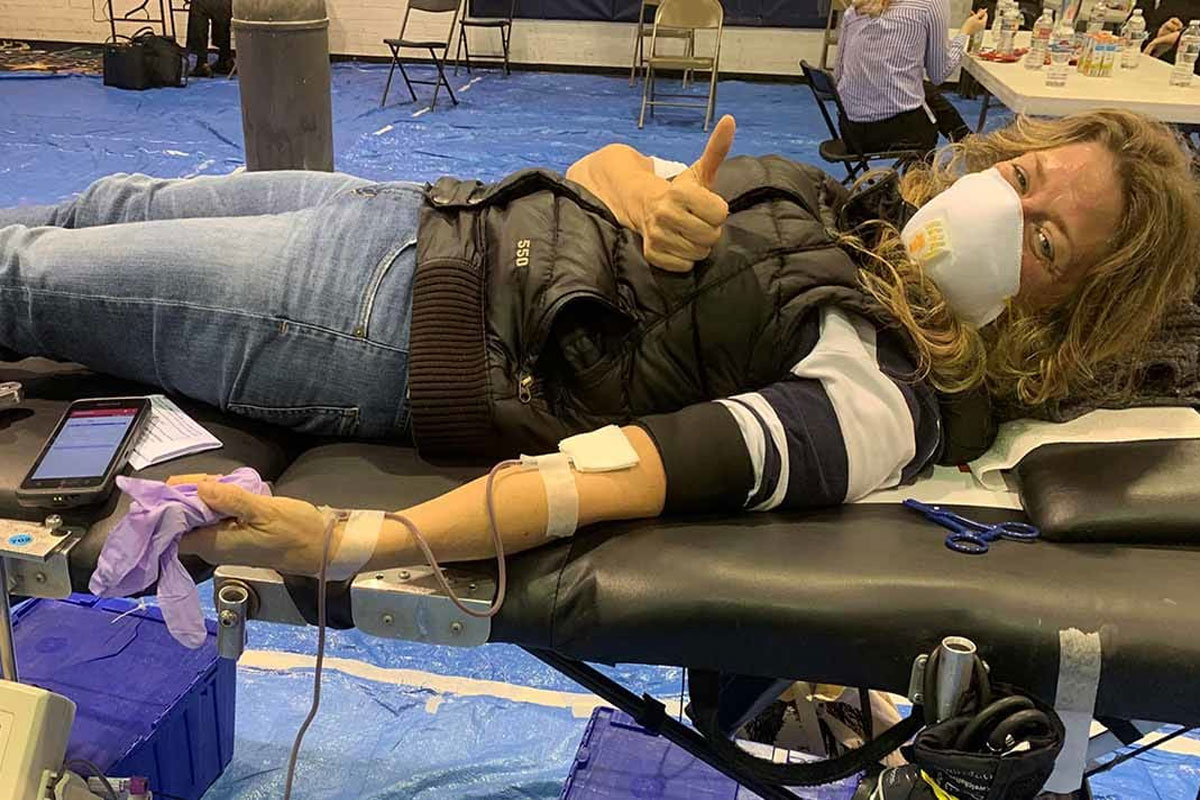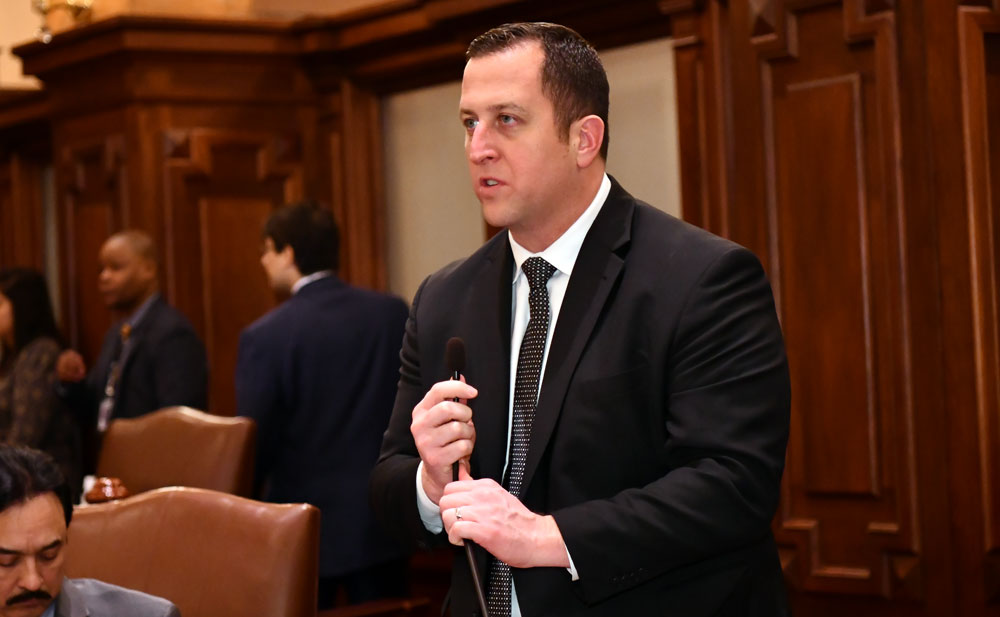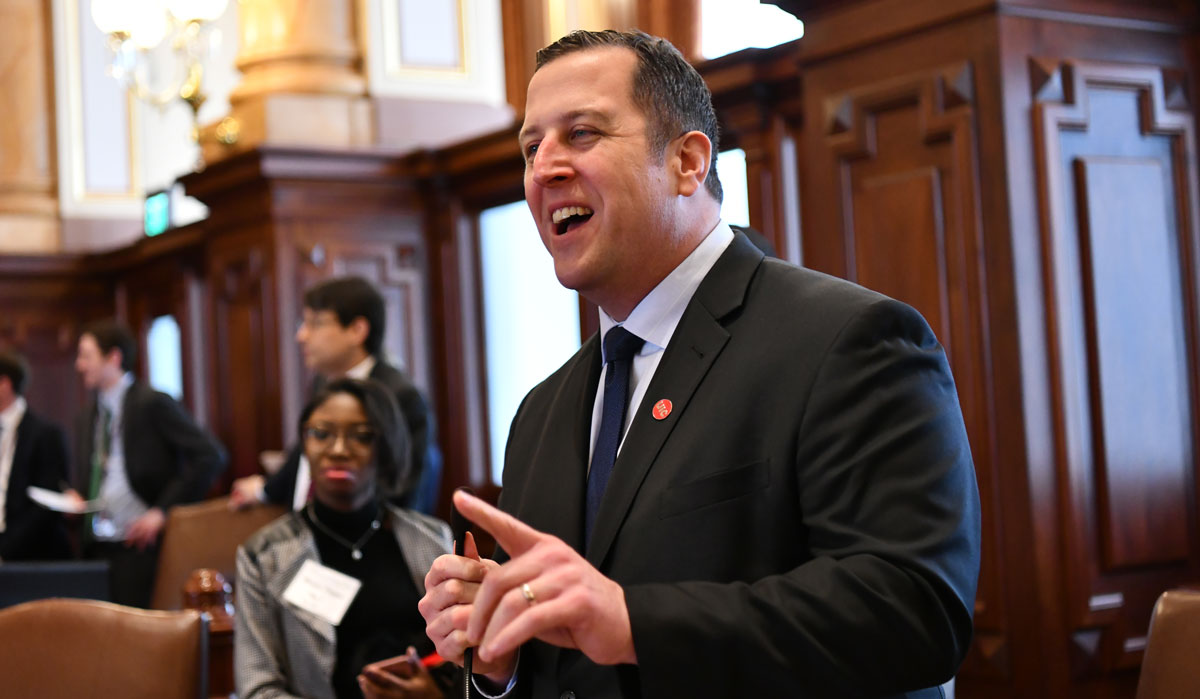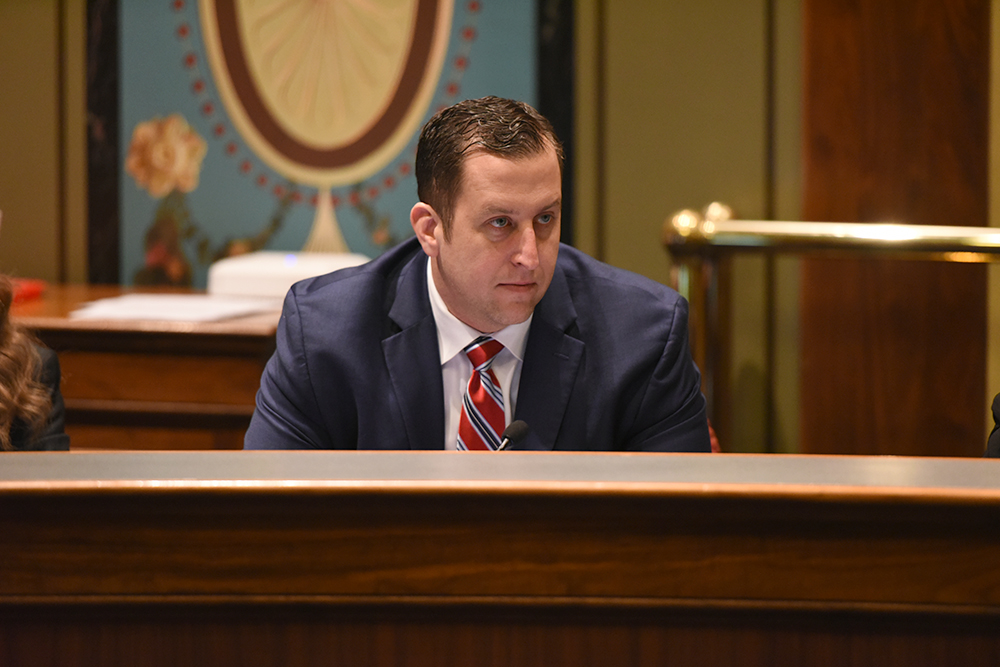- Details
- Category: Senator Michael E. Hastings News
 FRANKFORT – To bring relief to local businesses suffering from the economic devastation brought on by COVID-19, State Senator Michael E. Hastings (D-Frankfort) is encouraging small business owners across the South Suburbs to apply for the second round of Business Interruption Grants.
FRANKFORT – To bring relief to local businesses suffering from the economic devastation brought on by COVID-19, State Senator Michael E. Hastings (D-Frankfort) is encouraging small business owners across the South Suburbs to apply for the second round of Business Interruption Grants.
In a letter to Governor Pritzker several weeks ago, Hastings urged the administration to prioritize financial assistance to bars, banquet halls, restaurants and fitness centers throughout Will County due to the implementation of additional mitigation measures. As a result, businesses in Region 7 that submit an application will be given priority to ensure they receive the necessary support from the second round of BIG awards.
“The prioritization of Region 7 businesses doesn’t happen without the advocacy of business owners in Will County, and I want to thank them for voicing their concerns to me,” Hastings said. “At this point, every bit of help counts. This financial assistance will help businesses throughout Will County that have been negatively impacted by the recent COVID-19 mitigations. We are by no means out of the woods yet, so for us to continue working toward recovery, it’s vital that business owners struggling to get by submit their applications for the second round of grants.”
Applications for the second round of the Business Interruption Grants program will be made available Thursday, Sept. 17 and will offer $220 million in funds for small businesses hit hardest by the ongoing pandemic.
The second wave of funds from BIG aims to provide relief for all types of small businesses, with a focus on businesses located downstate or in disproportionately impacted areas. Application information for the second round of funds and can be found on DCEO’s website at Illinois.gov/dceo.
- Details
- Category: Senator Michael E. Hastings News
 FRANKFORT – In an effort to meet the current demand for blood donations in the South Suburbs, State Senator Michael E. Hastings (D-Frankfort) is partnering with Versiti Blood Center of Illinois to host a blood drive.
FRANKFORT – In an effort to meet the current demand for blood donations in the South Suburbs, State Senator Michael E. Hastings (D-Frankfort) is partnering with Versiti Blood Center of Illinois to host a blood drive.
“The COVID-19 crisis has led to a drastic reduction in blood donations throughout the state,” Hastings said. “I’m proud to team up with Versiti to provide a safe outlet for people to make a difference in our communities.”
The blood drive will take place Friday, Sept. 11 at the American Legion Post 111 building, located at 15045 S. West Ave. in Orland Park. Donation hours will be from 11 a.m. to 3 p.m.
This facility will follow recommendations from local, state and federal health agencies to keep staff, volunteers and donors safe. Appointments and masks will be required, and chairs in all areas will be at least six feet apart.
Healthy and eligible candidates can schedule an appointment to donate by contacting Senator Hastings’ staff at
- Details
- Category: Senator Michael E. Hastings News
 FRANKFORT– In response to Exelon’s decision that it is closing two nuclear power plants, State Senator Michael E. Hastings (D-Frankfort), who chairs the Senate Energy and Public Utilities Committee, released the following statement:
FRANKFORT– In response to Exelon’s decision that it is closing two nuclear power plants, State Senator Michael E. Hastings (D-Frankfort), who chairs the Senate Energy and Public Utilities Committee, released the following statement:
Read more: Hastings: We remain committed to securing the future of clean energy in Illinois
- Details
- Category: Senator Michael E. Hastings News
 FRANKFORT — To reduce long lines and to protect vulnerable populations, State Senator Michael E. Hastings (D-Frankfort) is urging older adults to take advantage of the driver’s license expiration date extension from the Illinois Secretary of State’s office.
FRANKFORT — To reduce long lines and to protect vulnerable populations, State Senator Michael E. Hastings (D-Frankfort) is urging older adults to take advantage of the driver’s license expiration date extension from the Illinois Secretary of State’s office.
“We have to continue taking every precaution when it comes to mitigating the spread of this virus,” Hastings said. “I’m pleased that Secretary White’s office is taking the initiative to reduce crowd sizes and make life easier for our people by any means possible.”
In addition to being 75 years of age or older, the driver must have a valid license—drivers whose licenses have been suspended or revoked do not qualify for the one-year extension. Eligible drivers should soon receive a letter from the secretary of state as proof that they qualify.
For drivers under age 75, expiration dates for driver’s licenses, ID cards and license plate stickers have been extended until Nov. 1, 2020. Customers who choose to visit a facility must wear a face mask. In addition, customers are asked to be patient due to heavy volume and to be prepared to wait outside in various types of weather.
Residents are encouraged to visit www.cyberdriveillinois.com to avoid waiting in line and take advantage of online services, including replacements and renewals of registrations, driver’s licenses and ID cards.
More information regarding services provided at local Secretary of State facilities can be found at www.ilsos.gov/facilityfinder/facility, and the facility in Decatur can be reached by phone at 217-875-1650.
- Details
- Category: Senator Michael E. Hastings News
 CANTON – Unveiling a new proposal that would transform the renewable resource landscape in downstate Illinois, State Senator Michael E. Hastings (D-Frankfort) joined colleagues and stakeholders at an Energy Summit in Canton today.
CANTON – Unveiling a new proposal that would transform the renewable resource landscape in downstate Illinois, State Senator Michael E. Hastings (D-Frankfort) joined colleagues and stakeholders at an Energy Summit in Canton today.
Hastings, who chairs the Senate Energy and Public Utilities Committee, called for a plan that would create job opportunities for people displaced by plant closures while transitioning several downstate communities to an increased role in generating renewable energy.
“Working class families and communities have relied on these plants for generations,” Hastings said. “With more potential plant closures looming, we have to find a way to preserve jobs, transition from fossil fuel to renewable energy resources and maintain an economic base within the communities.”
Under Hastings’ proposal, a program would be established to provide incentives for the installation and operation of renewable energy resources at the sites of former coal plants, helping the surrounding communities remain economically viable.
“Our state’s residents want clean energy resources, but we cannot take action without thinking about the future of energy across Illinois. We are a national leader in energy generation, and we must continue to provide job opportunities for people who work at coal plants and assist them during the transition to solar energy.” Hastings said. “I look forward to continue working with our community stakeholders, my colleagues, and the renewable energy community to make that happen.”
These proposals will likely be a piece of a larger package of energy legislation that could be taken up as early as the fall veto session.
- Details
- Category: Senator Michael E. Hastings News
 MATTESON – Following the announcement of the development of two new Amazon fulfillment facilities in Markham and Matteson, bringing thousands of jobs to the South Suburbs, State Senator Michael E. Hastings released the following statement:
MATTESON – Following the announcement of the development of two new Amazon fulfillment facilities in Markham and Matteson, bringing thousands of jobs to the South Suburbs, State Senator Michael E. Hastings released the following statement:
“While good news has been difficult to come by lately, today is a great day. I want to offer my thanks to the Amazon team for choosing to invest in the South Suburbs, specifically the 19th District. Additionally, I want to extend my congratulations to Village President Sheila Chalmers-Currin of Matteson and Mayor Roger Agpawa of Markham. They are committed to making a difference in their communities, and their efforts on this project are the latest testament to that.
“These projects are some of the most important regional projects we have had in decades. Residents have contacted my office with concerns about increased traffic, road construction, and construction noise, but I want to reassure them that state and local governments are working to ensure that their concerns are addressed. From beautification efforts, new traffic signals, and the addition of thousands of jobs, we want to make sure these projects work for you.
“While this year will see the construction of over three million square feet of regional distribution facilities, our work is far from over. Whether it is repurposing the former Lincoln Way North High School as a state-of-the-art State Police forensics laboratory, redeveloping the Lincoln Mall site into one of the finest retail facilities in the entire state, or finally completing the long awaited South Suburban airport, our communities are prime for development. I look forward to more exciting announcements to come.”
- Details
- Category: Senator Michael E. Hastings News
 FRANKFORT – The Illinois Commerce Commission announced the decision to approve several consumer protection measures during the ongoing COVID-19 pandemic, several of which State Senator Michael E. Hastings (D-Frankfort) called for as leader of the Senate’s Energy and Public Utilities working group this past legislative session.
FRANKFORT – The Illinois Commerce Commission announced the decision to approve several consumer protection measures during the ongoing COVID-19 pandemic, several of which State Senator Michael E. Hastings (D-Frankfort) called for as leader of the Senate’s Energy and Public Utilities working group this past legislative session.
“Throughout March and April, I met with my colleagues on the Senate’s Energy and Public Utilities working group and numerous stakeholders. Our charge was very simple: we had to arrive at a solution to protect consumers,” Hastings said. “I’m thankful that Chairman Zalewski and the ICC listened to our recommendations allowing us to arrive at a helpful solution.”
Details of the comprehensive consumer protection package include:
- Extending the suspension of disconnections for 30 days beyond Illinois’ entry into Phase 4 of the Restore Illinois plan, or Aug. 1, 2020, whichever comes first;
- Flexible payment options once that time is up;
- Bill assistance for eligible low-income customers;
- Expanded fee relief.
This agreement covers several of the state’s major utility companies, including Aqua Illinois, Illinois-American Water Company, Utility Services of Illinois, Ameren Illinois, Nicor Gas, North Shore Gas Company, Peoples Gas and ComEd.
“I appreciate the cooperation of these companies and their dedication to their customers,” Hastings said. “They understand as well as I do that COVID-19 is not going to simply fade away, and even when it does, the recovery process will be difficult for so many. Extending moratoriums on shutoffs and providing additional financial relief is our moral obligation.”
- Details
- Category: Senator Michael E. Hastings News
 SPRINGFIELD – State Senator Michael E. Hastings (D-Frankfort) recognized the obstacles students and teachers may face in the fall by supporting the General Assembly’s comprehensive education package, which was signed into law today.
SPRINGFIELD – State Senator Michael E. Hastings (D-Frankfort) recognized the obstacles students and teachers may face in the fall by supporting the General Assembly’s comprehensive education package, which was signed into law today.
“While COVID-19 has presented our educators and students with a situation they could never have planned for, it is still our job to provide them with the resources they need to succeed, regardless of circumstance,” Hastings said.
The education package does a number of things to help students and teachers affected by the COVID-19 pandemic. It includes extending educator license renewals for one year, so teachers don’t have to go through the renewal process while working remotely. It also allows for mandatory tests to be taken remotely, so students don’t have to risk getting sick in order to take an exam they need to apply for college.
Additionally, relating to higher education, any grade of “pass,” “credit,” or “satisfactory” during the public health emergency is transferable and will fulfill prerequisite requirements for more advanced courses.
“Students have worked hard on their classes during unprecedented circumstances, and those efforts should still count, even if they did not receive a typical letter grade,” Hastings said. “If a student has displayed commitment by completing their course work, they deserve full credit.”
It also modifies income requirements for the state's AIM HIGH education grant program, saying a student’s income when they enter the program will remain their income for the duration of their inclusion in the program.
This legislation is effective immediately.
More Articles …
- Hastings urges local business owners to take advantage of new grant program
- Hastings touts vote by mail expansion, naming Election Day 2020 a holiday
- Hastings: State budget provides essential services, protects public health
- Hastings, Senate Working Group push for additional energy consumer protections during the coronavirus pandemic
Page 13 of 16













 © 2026 Illinois Senate Democratic Caucus
© 2026 Illinois Senate Democratic Caucus